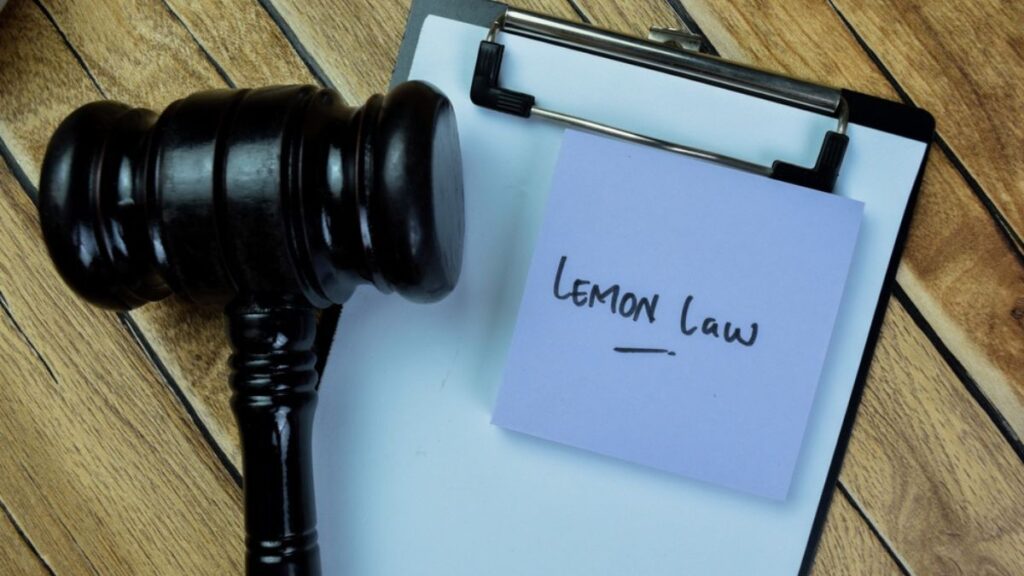Understanding Lemon Law Case Timelines
Lemon law cases are pursued when a consumer purchases or leases a vehicle that turns out to be defective and the defect cannot be repaired despite reasonable attempts by the manufacturer or dealer. The duration of these cases can vary widely. Some may resolve in weeks, while others can take many months, typically three to nine months or even longer in rare cases. Most car owners are eager to see a prompt resolution, so it is essential to understand the factors influencing a case’s length. For those in Michigan or nearby states, consulting a lemon law attorney in Michigan early in the process often helps set clear expectations and minimize delays.
The process is shaped by legal timelines and communication between consumers, dealers, manufacturers, and lawyers. Certain jurisdictions have established guidelines for consumer protection, yet every case is unique, depending on evidence, cooperation from the parties involved, and the complexity of the car’s defect. Patience is often rewarded, as careful preparation provides the best chance at a favorable outcome.
Main Factors That Affect Resolution Time
Several variables directly impact how quickly a lemon law claim moves forward. The complexity and nature of the defect play a crucial role—simple manufacturing issues may be quickly diagnosed and resolved. Still, intermittent or hard-to-reproduce problems may require more time and multiple repair attempts before a case qualifies under lemon law provisions. The responsiveness of the manufacturer or dealer also significantly affects the speed. Cases where manufacturers cooperate and acknowledge the problem tend to resolve faster than situations marked by pushback or disputes.
The completeness of documentation, availability of witnesses, and even the current caseload of local courts can influence the process. Regions with a high incidence of automotive disputes may face backlogs. Meanwhile, cases involving rare or luxury vehicles can further extend the time when parts and expertise are limited. According to insights from Consumer Reports, robust record-keeping and early legal advice are the best ways to counteract delays.
Essential Steps in a Lemon Law Case
Every lemon law case unfolds through a series of established steps, each contributing to the timeline. Initially, the consumer must report the defect and attempt repairs through an authorized dealer. Documentation at this stage is essential; repair invoices, communication logs, and warranty documentation build the foundation of the claim. Suppose reasonable opportunities to repair the car have passed. In that case, the consumer can move forward with a formal notification to the manufacturer, often giving them a final chance to fix the issue or propose a settlement.
If the problem remains unresolved, the case enters the legal phase. The attorney will help draft a demand letter that outlines defective issues, repair history, and the compensation sought. The manufacturer’s response to this demand may include negotiation, mediation, or, occasionally, outright refusal, which can then trigger the formal litigation process. This series of steps, from documenting issues to entering the court system if needed, typically sets the rhythm for the total case duration.
The Importance of Documentation and Preparation
Documentation is the cornerstone of a successful and timely lemon law claim. Every time the car is brought in for repairs, ensure the paperwork accurately reflects the defect and the attempted solution. Maintain receipts, letters, and emails exchanged with the dealership or manufacturer about the complaint. Well-organized records help your legal team craft a compelling, evidence-driven argument and prevent unnecessary back-and-forth that adds months to the process.
The more prepared a consumer is, the lower the chance of avoidable stalls. Consumer advocates who have tracked the outcome of lemon law cases widely recommend this level of preparation. A solid paper trail is also helpful if the court requests additional verification or if the manufacturer questions the validity of your claim.
Role of Legal Support in the Process
Having an experienced lemon law attorney by your side increases the efficiency of each case stage. These professionals have practical knowledge of local procedures, judges’, and manufacturers’ common tactics for delaying settlements. By anticipating these strategies, an attorney can move the claim forward more effectively, often reducing stress and communication redundancy. Legal expertise is especially critical for consumers dealing with complex vehicle issues or facing significant pushback from a manufacturer.
Attorneys often recommend mediation or early negotiation, which can sometimes resolve matters well before litigation becomes necessary. Their updates and advocacy ensure that consumers remain well-informed and empowered throughout the journey. Insights from NBC News suggest that while some consumers pursue claims independently, experienced representation almost always improves the timeline and the likelihood of a favorable resolution.
Settlements Versus Trials
Most lemon law cases are resolved through settlements outside of trial. Settlements offer the advantage of speed, privacy, and flexibility that court verdicts may not provide. The negotiation phase can take weeks to months, depending on how quickly both parties agree on compensation or the vehicle’s return.
When a case does proceed to trial, the timeline can become markedly longer. Trials require formal discovery, evidence presentation, witness testimony, and adherence to court schedules, all of which add time and complexity to the process. However, a trial may be necessary if negotiations stall or the manufacturer disputes the defect’s existence or severity. Understanding this distinction helps set expectations and informs strategic choices throughout the claim.
Proactive Strategies to Expedite Your Case
Proactivity is key to minimizing delays. Consumers who act quickly to report defects and obtain professional legal assistance frequently see shorter case durations. Keeping impeccable records, responding promptly to all requests, and being clear in communications can substantially shorten each stage. Where possible, choosing experienced legal counsel familiar with local lemon law nuances can also help, as can pursuing alternative dispute resolution when appropriate.
By actively engaging in the process, consumers position themselves for a smoother journey. This approach is echoed by consumer resource organizations and experts nationwide who have observed that informed action is the strongest predictor of a timely lemon law resolution.
The Outlook for Lemon Law Cases Moving Forward
With vehicle complexity and technology evolving, lemon law cases are expected to remain relevant. Legal systems and manufacturers are adapting to trends such as electric vehicles, advanced electronics, and new warranty models, which may reshape the length and outcome of claims in the coming years. Improvements in digital filing systems and alternative dispute mechanisms are already helping some regions process claims more efficiently.
For today’s consumers, the best strategy remains preparation, transparency, and informed support. Understanding the phases, timelines, and potential bottlenecks empowers car owners to move through the lemon law process more confidently. Ultimately, while no two lemon law cases are identical, patience and diligence remain the surest route to a successful resolution.






